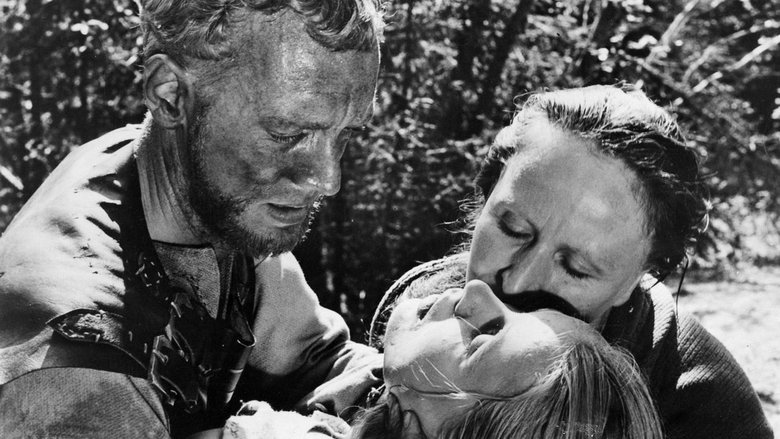← Back to Reviews

in
#399 - The Virgin Spring
Ingmar Bergman, 1960

In medieval Sweden, the only daughter of a well-off Christian family is sent to run an errand to a nearby church.
Wow, this is like a really boring and artsy version of The Last House on the Left. One out of five.
But seriously, the fact that my main point of reference for The Virgin Spring is Wes Craven's 1972 film, it's a credit to Bergman and his collaborators that The Virgin Spring ends up being not quite up to Bergman's usual standards due to its confrontational choice of subject matter but at least manages to avoid resorting to the same sort of gratuitously graphic tackiness that defined Craven's film. Fundamentally, though, both films follow the same plot, which I'm hesitant to discuss in detail because I'm not sure if this is the kind of movie that can afford to be spoiled (though I already knew what was going to happen before I started it, so I'm not totally sure). Actually, it deserves to be somewhat spoiled because of its potentially triggering nature, so I'll put that part under spoilers:
Even by the standards of early-1960s European cinema, that is a somewhat difficult scene to watch unfold - fortunately, Bergman is at least able to depict such an act without resorting to cheap sensationalism (but then again when does he ever?) In any case, as with many a Bergman film it is awfully preoccupied with faith and religion (Christianity in particular), and the faith or lack thereof belonging to the members of the family (especially Max von Sydow as the family patriarch who has no faith compared to his much more devout wife, daughter, and servant), though the acknowledgment of the guilt it lays on human nature becomes challenged when human nature begins to rear its ugly head. Knowing what happens gives the film a serious sense of fatalism that does translate to a lot of the performances and to Bergman's trademark visual vibe. Its extremely straightforward narrative and disconcerting events does make me think of it as my least favourite Bergman film as of writing, but that doesn't automatically make it a bad one.
Ingmar Bergman, 1960

In medieval Sweden, the only daughter of a well-off Christian family is sent to run an errand to a nearby church.
Wow, this is like a really boring and artsy version of The Last House on the Left. One out of five.
But seriously, the fact that my main point of reference for The Virgin Spring is Wes Craven's 1972 film, it's a credit to Bergman and his collaborators that The Virgin Spring ends up being not quite up to Bergman's usual standards due to its confrontational choice of subject matter but at least manages to avoid resorting to the same sort of gratuitously graphic tackiness that defined Craven's film. Fundamentally, though, both films follow the same plot, which I'm hesitant to discuss in detail because I'm not sure if this is the kind of movie that can afford to be spoiled (though I already knew what was going to happen before I started it, so I'm not totally sure). Actually, it deserves to be somewhat spoiled because of its potentially triggering nature, so I'll put that part under spoilers:
WARNING: "The Virgin Spring" spoilers below
The crux of the film's plot rests on the fact that the family's daughter, while running an errand involving candles for a mass, encounters a trio of shepherds who proceed to rape and murder her.
Even by the standards of early-1960s European cinema, that is a somewhat difficult scene to watch unfold - fortunately, Bergman is at least able to depict such an act without resorting to cheap sensationalism (but then again when does he ever?) In any case, as with many a Bergman film it is awfully preoccupied with faith and religion (Christianity in particular), and the faith or lack thereof belonging to the members of the family (especially Max von Sydow as the family patriarch who has no faith compared to his much more devout wife, daughter, and servant), though the acknowledgment of the guilt it lays on human nature becomes challenged when human nature begins to rear its ugly head. Knowing what happens gives the film a serious sense of fatalism that does translate to a lot of the performances and to Bergman's trademark visual vibe. Its extremely straightforward narrative and disconcerting events does make me think of it as my least favourite Bergman film as of writing, but that doesn't automatically make it a bad one.
